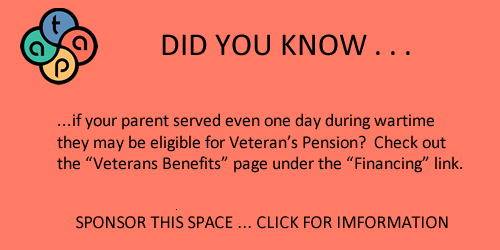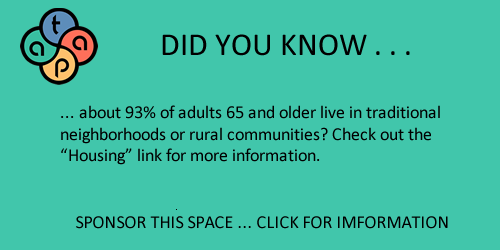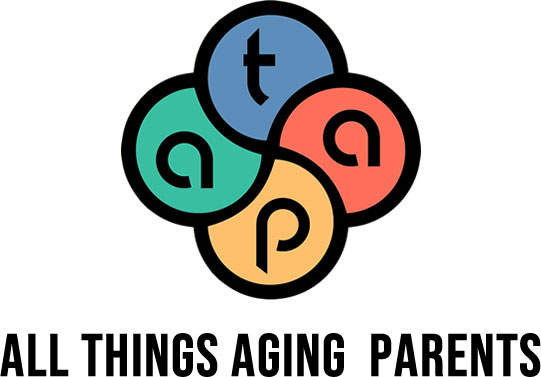Previous Insights
Making a Care Plan
Marianne Smith
When I was little I joined the Brownies, then made my way into the Girl Scouts. Pretty much all I remember about that was meeting in a Quonset hut on the army base where we lived, and the Girl Scout motto, “Be prepared.” (Yes, that’s Girl Scouts as well as Boy Scouts.) Never has preparation been more important, or more challenging, than in caring for our aging parents.
It starts simply enough. First, you call to see if Mom and Dad need anything from the grocery store since you're going anyway. Then when you drop their things off you decide to wash up the dishes in the sink. Later you offer to pick up their prescriptions, then take them to their doctor
appointment. As you listen to what the doctor has to say, you realize that Dad won't ever be able to remember all that he has said, so you start taking notes in your phone. Pretty soon you realize that he needs you to help manage all of his medical issues because his memory isn't what it used to be. And then you discover that they have been eating out nearly every meal because Mom isn't able to cook anymore, so something has to be done, but what?
Sometimes it starts with a bang. Mom has a stroke and can no longer care for herself, or Dad has an accident, and all of a sudden you are thrust into this role. Dad needs a shave?! Mom needs reminders to take her medication?!
Caregiving creeps up on you. One day you think you are just helping out a little, and before you know it you’re drowning. Oh, you won’t admit it, you’ll just suck it up and feel critical of yourself because you seem to be falling behind and not making time for everything you “need” to be doing. But one day you’ll wake up and say, “I am drowning. Something’s gotta give here!”
What we want to do is help you NOT reach that point. Caregiving is a marathon. Most people can put their lives on hold for a short, acute crisis, but for the long haul, you need help. You need a strategy and coping mechanisms. Here are some suggestions:
- Be sure your parents have their legal/medical documents in place, so they have named someone to speak for them in the event that they can’t speak for themselves. See our recommendations here.
- Identify people who can help. This does not require huge chunks of time, but a couple of hours of help one day a week means that you can go grocery shopping without worry. Think about your parents’ friends, neighbors, faith community members, your friends, your family, etc. It will help to have a team both deep (who can come for a week to provide respite care while you get away) and wide (someone who can play cards with Dad for a couple for hours so you can take a long bath and read a book).
- Make a care plan. Meet together with as many of your team as possible, whether this is face-to-face, a joint Skype or FaceTime call, or a series of emails. It will help if you brainstorm a list of tasks you may need help with either before you start or at the beginning of the planning meeting. If you keep your list of ways people can help handy, then you’ll always have it anytime someone says, “Tell me how I can help.” You’ll never think of every possible scenario, but you can always add to your list. Try to think of things that may arise in the future, too.
- Let people volunteer: “I’ll be happy to take Fred to Bible study with me each Tuesday.” “I could drive Betty to the park for an hour every other week.” “I’ve got vacation coming up in March; why don’t I come to stay with Mom and Dad so you can get a break.” Family members who live far away are great for respite care. Or maybe one of them would be comfortable managing your parents’ finances. There are plenty of ways they can help. If people don’t volunteer, don’t be shy about asking for what you need.
- Write up your care plan so you don’t forget people, tasks, offers of assistance, etc. That may sound like I’m insulting your intelligence, but trust me – being overwhelmed can cloud your mind quickly. Figure out a way to communicate with your care team – whether it’s email or centralizing your information in a central location. (Take a look at Care Tree, as one suggestion.)
- Supplement your plan, if necessary. This will require some research (another thing family members can do long distance!). If you need additional care beyond what your team and you can provide, check out professional options, like home care services - who provide companionship, cooking, transportation, and assistance with Activities of Daily Living (ADLs)* - pretty much everything except skilled nursing care. If you need nursing care, you can check out home health agencies (some of which may be covered by Medicare). We have a list of several caregiver supports here, which includes a link to your local Area Agency on Aging, a helpful resource guide. *ADLs include bathing, dressing, eating, toileting, caring for incontinence, and transferring in or out of a bed or chair.
- Take care of yourself. This is a subject for another article, but we can’t talk about making a care plan without emphasizing that you
must take care of yourself. If you have a pitcher of water that you are pouring out for someone else, that pitcher is going to run dry unless it gets refilled. Let’s make this easy – the pitcher is you. You can give love, care, listening, driving, cooking, cleaning, and everything else for your parents, your spouse, your kids, the dog… but if you don’t take some time to fill yourself up, you’re going to run dry. Figure out what is life-giving for you - good music, a TV show, a walk, watching a baseball game, prayer, having coffee with a friend – and build time into your care plan for that.
The priority should be having a plan in place before a crisis hits, and well before you start feeling burned out by the constant stress of caregiving. But if you plan early and start by incorporating other friends and family as support members of your caregiving team, you have a strategy in place to help you make it through this marathon. Let’s be prepared – TOGETHER!
AARP has a great guide called “Prepare to Care: A Planning Guide for Families” available here.


The information contained in this website is provided as a service to the Internet community, and does not constitute legal or medical advice. All Things Aging Parents works to provide quality information, but we make no claims, promises or guarantees about the accuracy, completeness, or adequacy of the information contained in or linked to this website. Information should be researched and used in light of the specific circumstances of each case. Because laws and policies are constantly hanging, nothing provided here should be used as a substitute for professional advice.
Senior care is a challenging and constantly changing topic. In order to stay relevant to your needs, ATAP welcomes your comments and suggestions. Please email us at: info@allthingsagingparents.com
All Things Aging Parents helps families during the overwhelming times of changing family dynamics and responsibilities. We don't want to add stress to this process so we offer our information free of commitment. Our sponsors make this possible. Please click here for more information about becoming a sponsor.
Privacy Policy

